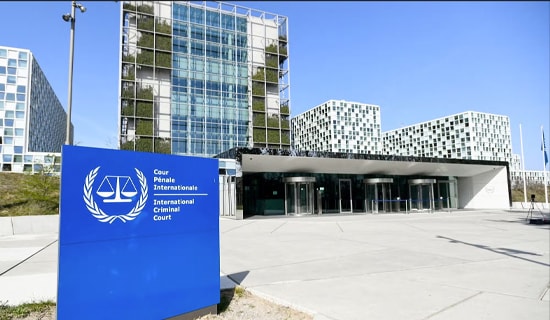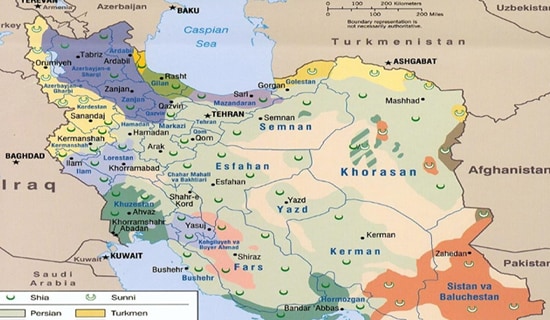In a nomination that one member of the Chancellery described as a "small shock," Rachida Dati, 41, was appointed justice minister by President Nicolas Sarkozy following the latter's recent electoral victory.[1]
Rachida Dati was Sarkozy's spokeswoman during his presidential campaign as the UMP candidate. From 2002 up to the presidential campaign, she had been Sarkozy's advisor at the Interior Ministry, a position she obtained thanks to a letter she wrote directly to Sarkozy asking to advise him on immigration.
Born to poor North African Arab immigrants, the second of 12 children, Rachida Dati is acclaimed in the French press for her "American-style" success story. She worked as a checkout clerk at a supermarket, and as an auxiliary nurse. Her mother died young, and she had to care for her younger siblings. Her hardships did not, however, stop her from earning an MBA in law and economics, and later becoming a magistrate.
Often compared to Nicolas Sarkozy himself, and even called "Sarcosette" by the French satirical paper Le Canard enchaîné because of the personality traits she shares with Sarkozy as well as of her poor background (i.e. a pun on the character Cosette from Victor Hugo's Les Misérables), she says of Sarkozy: "He was never given anything. He fought for everything he has. Something in him echoes in me: I think it is his rejection of fatalism." She adds: "Politics is about preventing fatalism."[2]
After Sarkozy angered many by calling rioters in the immigrant suburbs "racaille" (scum), Dati was described as trying to rebuild Sarkozy's reputation in those areas – a description she rejects: "It was not a comeback in the suburbs. We went though all of France, and about 300 times to difficult areas, together with Nicolas Sarkozy – since 2002 – and we never had any problems."[3] In one campaign video, immigrant youth were shown speaking of Rachida Dati with love and respect, saying she was an example for them and saying, "I [too] am Rachida Dati".[4]
The following is a look at the ideals Rachida Dati is promoting, and at her first acts as justice minister:
"The One Place that Should, More than Any Other, Be Spared from Ideologies, Are the Schools"; "Teaching the Values and the Principles of Coexistence – This is What Society Owes Its Children"
Anyone born on French soil is entitled to French citizenship; thus Rachida Dati, daughter of Moroccan bricklayer Mbark Dati and Algerian housewife Fatim-Zohra Delhoum, says: "I am a French of French origin, since I was born in Bourgogne."
Rachida Dati is a defender of the values of the French Republic, in which she sees the guarantee of a free and dignified life: "The French Republic offers people who are in social difficulties the possibility to overcome them at some point. I have never denied my identity, neither my culture nor my origins."[5] During a June 15, 2007 visit to Lyon, she talked of the "Renaissance" of the French Republican values of "liberté, égalité, fraternité," and recalled the citizens' "rights and duties."[6]
Referring to the French educational system as a channel of transmission of values of the French Republic, she said: "What French society offers is access to freedom through school and work."[7] As Sarkozy's spokeswoman during his presidential campaign, she insisted that Sarkozy would break with the heritage of May 1968, saying: "The heritage of May 1968 is total relativism and individualism: 'forbidding is forbidden'; 'one must enjoy life without restraints,' Teaching such slogans to students in the process of building their identity amounts to preventing them from doing so. The one place that should, before any other, be spared from ideologies, is the school. The acquisition of basic knowledge, the inculcation of culture, the teaching of values and the principles of coexistence – this is what a society owes its children."[8] She does not hesitate to present herself as an example: "My career is a good illustration of what [former Interior] minister [Nicolas Sarkozy] wants: the restoration of [the values of] work and merit."[9]
On Youth in Immigrant Suburbs: "When I See You, I Can Read Part of My Life in Your Faces; I Know the Frustrations That Can Lead to Hate"
Referring to Sarkozy's use of the term racaille ("scum") to describe the November 2005 rioters, she said: "I have a lot of respect for [the youth in immigrant suburbs], and they have a lot of respect for me."[10] With her usual political strategy of putting herself in the shoes of her audience, she requested in a visit to Lyon "to speak to the people, out of respect for them," and told the audience: "When I see you, I can read part of my life in your faces. I know the frustrations that can lead to hate."[11]
According to Rachida Dati – who has for years sponsored associations for the integration of suburban immigrant youth – these youth want to hear that work and merit will allow them to overcome their difficulties. Dati says: "I would not be in the position I am today if I hadn't had the possibility to hope. You have not always been told the truth on the way to achieve excellence. If I stand here today, it is because I have been very demanding of myself. For years, we have been told not to be demanding [with ourselves]. Young people must be taught to be self-demanding. They expect a lot of [us] politicians… I think the youth can testify that I spend a lot of time with them… I have not forgotten the youngsters I have known and accompanied, and I have not abandoned the associations I believe in… The youth must have faith in themselves and act for themselves… It is not enough to make a lot of noise. One needs ideas and dreams, to do every possible thing in order to achieve them… If we believe in one another, we will be able to achieve joint projects with the potential to bring excellence, ambition and success for all."[12]
On Immigrants: "Never Have They Wanted So Badly For Us to Stop Speaking in Their Name, Treating Them Differently, Separating Them from Others"
Dati argues that, contrary to the widespread belief that the poor only want to be financially assisted, the basic values of work and merit are also theirs: "Nicolas Sarkozy knew how to deal with the truth at a time when the general political discourse did not deal with what really matters: work, merit, authority and integration. He talked about France, about our identity and principles. See how many voted for Nicolas Sarkozy in the working-class neighborhoods. I know these neighborhoods. I lived in them. I spent my childhood and my youth in them. I knew that many there would adhere to this project. Never have the population of poor areas so eagerly yearned for truth and honesty. Never have they wanted so badly for us to stop speaking in their name, treating them differently, separating them from others. Never have they wanted so badly for us to talk to them about their problems, provided that we help them find solutions, that we suggest something new, deep, and true."
"Daring to place work at the core of our project, daring to give to those who have less, daring to implement affirmative action the French way… This is the dream of a more fraternal, united France, a France where no one is left on the side, where no one is ashamed of his/her name, skin color, neighborhood, or his/her parents' profession."[13]
Actions as Newly Appointed Justice Minister: Minimum Mandatory Sentences for Repeat Offenders, €20 Million for Security of French Courts
After being named justice minister, Rachida Dati proposed a project of minimum sentences for repeat offenders. While maximum sentences are already in place, there are currently no mandatory minimum sentences – and enacting these was one of Sarkozy's campaign promises. The minimum sentences are to be established on the basis of a third of the regular sentence: For a crime entailing a 15 year prison sentence, such as rape, the minimum sentence will be 5 years. For murder, with a 30-year sentence, the minimum sentence will be 10 years.[14] Juvenile offenders aged 16 to 18 will no longer benefit from sentences half as long as adults' in case of repeated offense.
In the Justice Ministry, judges expressed fear that this measure will fill up the already overcrowded prisons, even though under the project judges can still disregard the new sentencing guidelines "provided they explain why."[15] Dati justifies the measures as follows: "I think inmates who leave prison and commit the same offenses again… must understand that there are limits that should not be exceeded."
On the other hand, Dati has said that she is considering setting up a British-style independent inspection committee to monitor conditions in France's much-criticized jails. [16]
In addition, Dati decided to devote € 20 million to the security of French courts, after a judge was stabbed in Metz, France: Fathia Benzioua, a depressive drug addict, stabbed the judge after the court decided that her two-year-old son should be placed in the custody of his grandmother. Dati said: "It is impossible to implement justice in a calm environment in such complete insecurity. The fact that violence has become so common is unacceptable."[17]
Reactions by Arab North Africans to Rachida Dati's Nomination
On blogs and websites, Rachida Dati was harshly criticized for supporting Sarkozy by writers identified as North African Arabs. Dati was even described as "North African on the outside, bigoted Caucasian on the inside." Another contributor wrote: "Ms. Dati's parents wouldn’t even have been allowed to enter France under Sarkozy’s proposed immigration policies, and that’s just one of the reasons I find her so hypocritical."[18]
Marwan Muhammad a French Muslim of Egyptian and Algerian origin, sees Rachida Dati as a beneficiary of affirmative action: "Is Rachida Dati being played in Sarkozy's strategy to win over the support of the minorities? Sarkozy has for years supported the idea of affirmative action, which comes down to hiring minorities to balance the injustice caused by discrimination. It could be argued that minorities would like to be hired for their skills and not for the color of their skin, and that a more positive and fair option would be to pass laws preventing racial and religious discrimination, instead of counterbalancing one injustice with another. Dati is a typical example of this so-called affirmative action, as she was virtually nonexistent in the political game until January 2007 [Dati was appointed as Sarkozy's spokeswoman on January 14, 2007]."[19]
A Dutch-Moroccan student reflected a more positive stance: "Rachida Dati, as an individual and immigrant-child [sic], has a complete right to agree with Sarkozy’s policies. And Sarkozy has a complete right to appoint her, without being accused of looking for a poster boy (girl)… It’s time we started realizing that not all (second-generation) immigrants are the same. That we don’t share the same values, even though we share the same background."[20]
For its part, the Egyptian Al-Ahram Weekly Online showed enthusiasm for the new justice minister: "Rachida Dati is a winning personality. France's new justice minister is a woman of substance. She refuses to be counted as a token Arab and Muslim in the French cabinet. Her gender, sophistication and cheerful nature set her apart. She is a Westernized Arab and Muslim woman who has discarded the Islamic hijab, and is not afraid or ashamed of wearing miniskirts and makeup. Her vivacious laughter, sparkling dark eyes and enchanting Maghrebi beauty is full of promise."[21]
* N. Maruani is a research fellow at MEMRI.
[1] "Rachida Dati, Sarkozette sans complexes," Le Monde, May 23, 2007.
[2] "Rachida Dati, Psychanalyse d’un conte de fées" by Gaël Tchakaloff, http://www.nouveleconomiste.fr/ .
[3] Interview by Hanane Kaddour, http://yahoo.bondyblog.fr/892.html .
[4] http://www.dailymotion.com/relevance/search/rachida%2Bdati/video/x1pgtq_sarkozy-ou-sarkosleep .
[5] Online daily L'Internaute, http://216.239.59.104/search?q=cache:A_26044Ydx8J:www.linternaute.com/video/femmes/qui-est-rachida-dati/+rachida+dati+interview&hl=en&ct=clnk&cd=4 .
[6] "Dans le Rhône, la venue de Mme Dati suscite l'enthousiasme", Le Monde, June 16, 2007.
[7] Sept à huit, http://3.upload.dailymotion.com/tag/interview+sarkozy/video/x1z206_rachida-dati-interview-sept-a-huit .
[8]" Interview de Rachida Dati," Le Figaro, May 5, 2007.
[9] www.sarkozy.fr/video/index.php?strMode=changeVideoAjax&intChannelId=13&intVideoId=103 .
[10] Sept à huit, http://3.upload.dailymotion.com/tag/interview+sarkozy/video/x1z206_rachida-dati-interview-sept-a-huit .
[11] "Dans le Rhône, la venue de Mme Dati suscite l'enthousiasme," Le Monde, June 16, 2007.
[12] http://www.dailymotion.com/relevance/search/rachida%2Bdati/video/x1pgtq_sarkozy-ou-sarkosleep .
[13] http://6.upload.dailymotion.com/tag/pr%C3%A9sidentielle+ump/video/x1tio7_rachida-dati-dijon .
[14] "'Peines-plancher' : Rachida Dati précise sa réforme," Le Figaro, June 1, 2007.
[15] "Le projet de loi sur la justice au Sénat en juillet, dit Dati," Le Monde, June 13, 2007.
[16] Reuters, June 1, 2007.
[17] Le Monde, June 6 and 9, 2007.
[18] Morocco Time, May 18, 2007, http://liosliath.com/blog/?p=237 .
[19] IslamOnLine, June 20, 2007, http://www.islamonline.net/servlet/Satellite?c=Article_C&cid=1182292509066&pagename=Zone-English-Euro_Muslims%2FEMELayout.
[20] http://64.233.183.104/search?q=cache:nVd9c-03RpUJ:maghrebism.com/2007/05/19/regarding-rachida-dati-and-my-previous-post/+rachida+dati&hl=en&ct=clnk&cd=22 .
[21] Al Ahram Weekly Online, http://weekly.ahram.org.eg/2007/846/_bah.htm.








